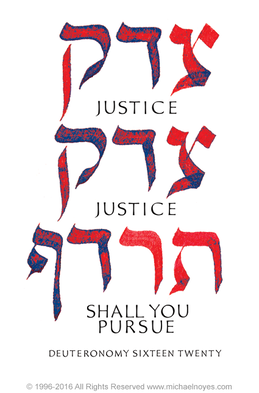
This has been a great baseball season, especially if you are a fan of the Boston Red Sox, the New York Yankees, or the Houston Astros. With just eleven or twelve games left to play, all three of these American league teams have either reached or have a good shot at reaching one hundred wins or more. If they can keep it up, this might be the first time in Major League history that three teams from the same league all finish above the century mark.
But, of course, that is not all that is happening in baseball. Every season is filled with thousands of stories – some big and some small – that all tell us something about the game, about life, and about our world. This morning, I want to tell you one very small story that you may not have heard about. It’s a story from the other league, the National League, and it is a story that teaches us about more than baseball.
In a game between the Chicago Cubs and the St. Louis Cardinals on July 22 at Wrigley Field, the Cards led 2-0 in the bottom of the fourth inning. Cubs center fielder Ian Happ came up against Cardinals pitcher Miles Mikolas with one out and a runner on second. Happ tapped a pitch softly foul down the first base line. The Cubs’ first base coach Will Venable picked up the ball and, as coaches often do, he tossed it gently to a young fan, about ten years old, sitting in the first row. Nice, right?
The boy, however, missed the toss from Venable and the ball fell to the ground under the seats. An adult man sitting in the row right behind the boy quickly reached down and picked up the ball that the coach had intended for the youngster. He immediately held the ball up in triumph and in laughter. He then presented the ball to the woman sitting next to him. Neither the man nor the woman even looked at the boy. The woman just took out her cell phone to take a picture of her prize.
Now, this entire sequence of events was, of course, caught by a television camera and broadcast across the country. Not only that, but someone captured the video and Tweeted it out to the world with the caption, “When going to a baseball game, DON'T be this guy.”
You can imagine what followed. The Tweet-storm that followed was filled with indignation over the grown man who stole a ball from a kid and laughed. Here are just a few of my favorite responses: “This guy shouldn’t be allowed back to the ballpark,” “Who is this guy? I bet he steals his kids’ Halloween candy,” “That was mean, just mean,” and, my favorite, “I hope this man and woman are booed wherever they go for the rest of their lives.”
The Cubs organization, realizing that they had a situation on their hands, sent a stadium worker to the boy to make amends. The boy was given a baseball signed by Cubs All-Star second baseman Javier Baez, and the Cubs official Twitter account sent out the message, “A [Javy Baez] signed ball should take care of it.”
A photo of the kid was included in the Cubs tweet showing the youngster proudly holding up two baseballs. Yay. The villains were publicly humiliated and, due to the quick thinking of the Cubs organization, the boy went home happy with, not one, but two baseballs, one signed by his hero. God’s in His heaven and all is right in the world.
Here are a few of the news headlines that came out that day: “Cubs intervene after fan steals ball from child.” “Cubs Give Young Fan 2 Baseballs After Middle-Aged Man Steals Foul Ball.” And “Terrible Cubs fan savagely steals foul ball away from young child.”
And, by the way, later in his at-bat, Happ hit a double down the first-base line to knock in the Cubs’ first run of the day. The Cubbies went on to win the game, 7-2.
But this is not the end of the story.
A few hours after the game ended, some new details emerged. It started when a fan who had been sitting next to the laughing man during the game sent out his own Tweet. He wrote, “He had already helped that kid get a ball. He gave two more [balls] away to kids also. He was a great guy. TV got this all wrong.” Uh-oh.
Then another fan wrote, “I was sitting next to the boy and the same fan helped him snag a ball a few innings before this.”
So, remember that the Cubs organization had given the boy a ball signed by Javy Baez, but, in the photo, the boy had two balls. Well, you guessed it. The second ball was one that the laughing man had given the boy a few innings before the incident caught on the video.
The Cubs organization confirmed this. One of the Cubs’ on-air hosts sent out a message saying, “The man who grabbed the ball on the widely seen video had actually already helped the little boy get a ball earlier. The young man has a game used ball and a Javy Baez ball. All is well. Guy is A-OK so let it go people.” Oops.
And, here is the last detail that came out. It seems that the woman that the laughing man gave the ball to – that was his wife. After she snapped the photo, she handed the ball to yet another child, a stranger to her, who had not yet gotten a ball that day. Double oops.
So, what do we learn from this? What Yom Kippur lessons are there for us to gather from this story of a baseball, the internet, and misdirected blame? Well, let’s notice a few things about this story.
We get outraged so easily, don’t we? It doesn’t take more than a headline to get our blood boiling. In these days when Twitter, Facebook, and a host of partisan news sites scramble post sensational headlines as quickly as possible, it is O-so-easy for us to react impulsively.
But before I get too self-righteous about modern technology, let’s also notice that this is a human problem, not just an internet problem. Our autonomic nervous system wants to respond with outrage much more than our conscious mind wants to investigate and digest complex information. We human beings are prone to overreacting when we feel a situation is unfair and unjust, or if we believe that someone vulnerable, like a child, is being taken advantage of. It’s part of how our brains work.
It’s actually even worse than that, because, as we have seen, there are always people who, for their own purposes, are willing to take advantage of our over-reactive nervous systems by intentionally creating outrage. It has reached the point now where we are exposed constantly to images, news stories, and provocative statements that are designed to trigger our impulse to indignation. We are being manipulated. Our proclivity towards outrage is being used to drive our society apart.
Outrage like this tends to provoke equal and opposite reactions until everyone is angry, pointing fingers at each other, casting blame. We are all so busy being infuriated that no one actually tries to solve the underlying problems.
The examples are obvious:
The recent outrage over the separation of children from their undocumented immigrant parents provoked an opposing outrage from people who believe that immigrant families are taking advantage of our society and draining our resources. As a result, everyone is angry, and very few people are actually promoting bipartisan solutions to our country’s broken immigration policies.
Gun safety advocates say their opponents are responsible for the violent deaths of children. Gun rights advocates say their opponents are conspiring to strip the civil rights of law-abiding citizens. Compromise solutions are muted by attention-grabbing headlines.
Abortion opponents say their political rivals seek the murder of innocent children. Reproductive rights advocates accuse their rivals of causing the death of women who must resort to back-alley, clothes-hanger abortions. Emotions and beliefs on both sides are so extreme that our society has become incapable of having any true dialogue on these issues.
How can a society not tear itself apart when it is divided by such intense vitriol, accusation, anger, and demonization? It has led us into an age of bloodless civil war. (Which, by the way, is exactly how all actual bloody civil wars get started).
Now, believe me, I am not saying that neither side is right in these debates. I have been a partisan myself on all of these issues. I, too, have used strong language in speaking out against those who oppose my point of view. Yet, we have to recognize that believing that we are right on an issue does not require us to be so outraged by those who disagree with us that we must declare them to be unfit for the human race. Remember how easily people were provoked into saying that the laughing man at the ballpark should be banned from baseball for life? Remember how foolish such claims looked after we took the time to suspend our immediate, instinctually anger and considered all the facts from a wider perspective?
Yom Kippur is a day to consider how, sometimes, the best part of us leads us to our worst behaviors. We have all had moments when we have been overwhelmed by our self-righteous certainty. We have all had times when we thought that we, surely, were on the side of the angels and that those who disagreed with us were the very devil incarnate. Yom Kippur reminds us to follow the words of our Sages who taught, “Make your Torah study a permanent fixture of your life. Say little and do much. And receive each person with a pleasant demeanor” (M. Avot 1:15). Our tradition teaches us not to be sucked so easily into the outrage machine. Rather, we are asked to take the time to learn, to see things from a broad perspective. Our tradition teaches us to be more concerned with finding resolution to address the world’s ills than with words of accusation and denunciation. It teaches us to cultivate an instinct toward kindness, pleasantness, making peace, and seeing the best in other people.
It is not always an easy thing to do, especially when we live in a world that has so much to arouse our anger and outrage – especially when so many are intentionally trying to keep us in a state of perpetual outrage. In the end, though, the path of compassion and kindness is the path that leads to real solutions, real understanding, and real healing for a world that is as battered and bruised as it is.
This Yom Kippur, make yourself a person who takes the time to reflect, consider, and to know the facts. Don’t be the one who launches the angry tweet without thinking. Be the one who says little, does much, and brings healing to the world.
G’mar Chatimah Tovah. May you be sealed for a good year.



 RSS Feed
RSS Feed
